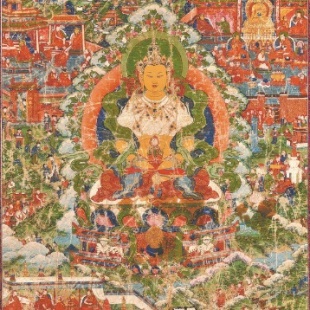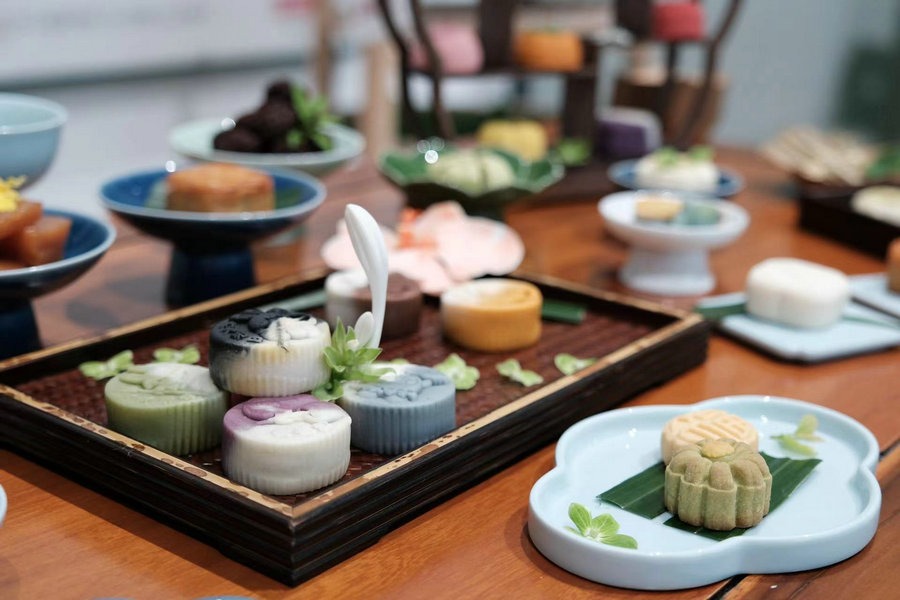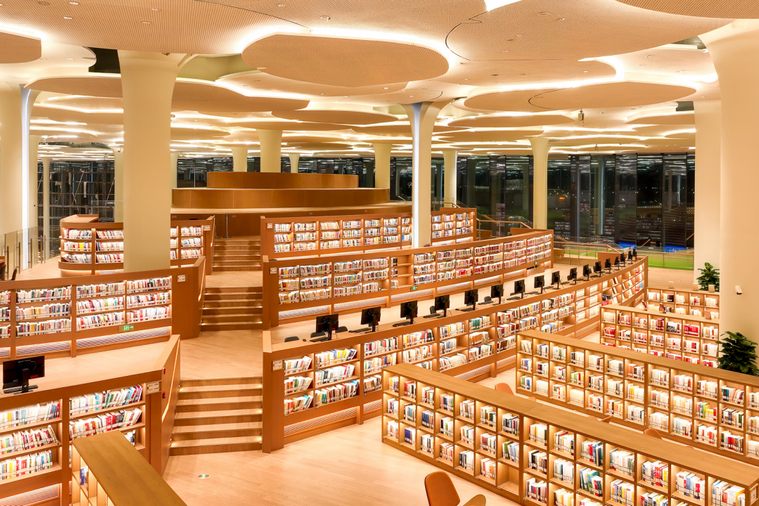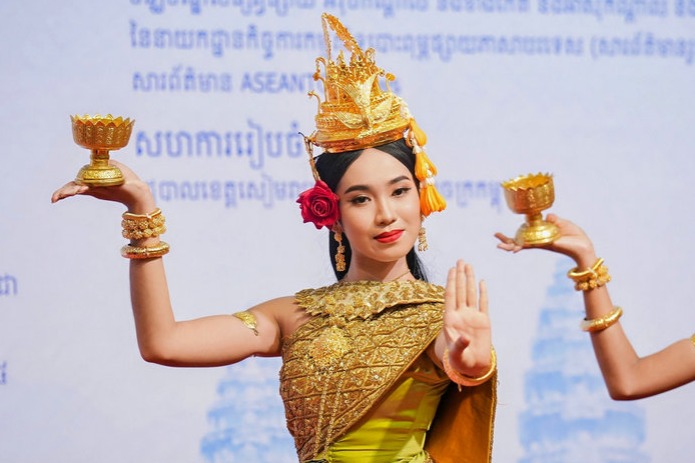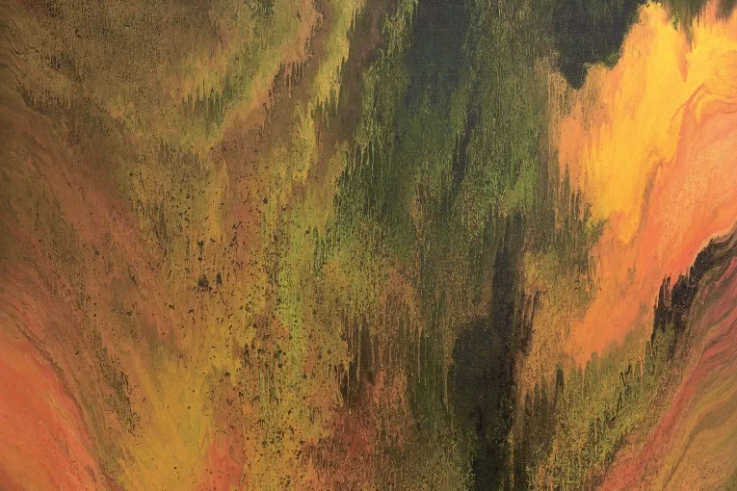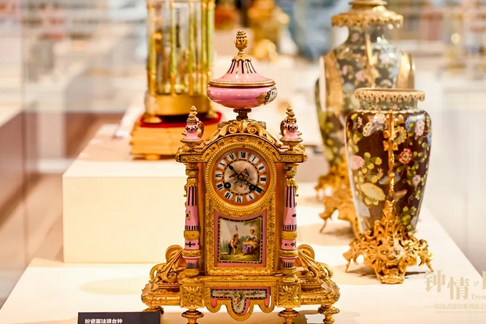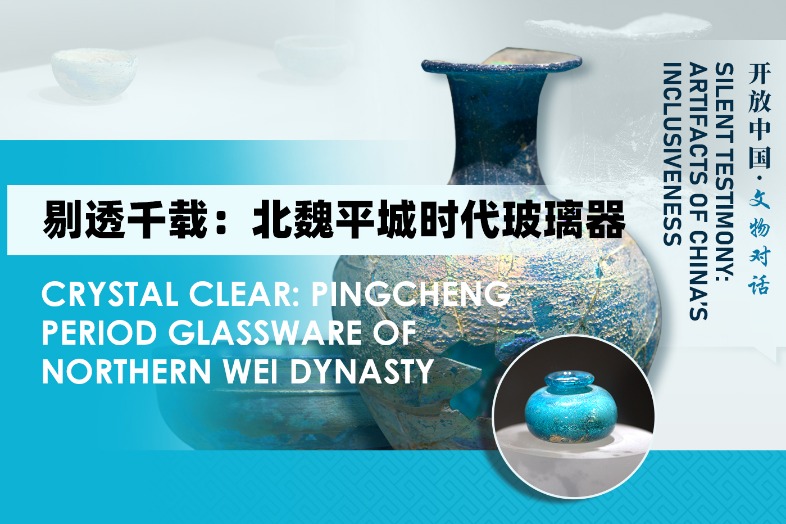Tibetan thangka paintings on show at two museums


A collection of precious duplicates of ancient thangkas and contemporary artworks from Tibet's Sakya county, some of which are being exhibited to the public for the first time, are currently on show at the Shanghai History Museum and Shanghai Xuhui Art Museum.
"Tibetan culture is an important part of traditional culture in China and thangka is a representative art form of Tibet," said Zhou Qunhua, director of the Shanghai History Museum, at the opening ceremony of the exhibition on Saturday.
Tibetan thangkas are traditional paintings done on cotton, silk or paper and usually themed on Tibetan religion, history, politics, culture and life. The materials used by thangka artists include treasured metals such as gold, natural mineral pigments, as well as plant-based colors.
Today, the art form, which was listed as a national intangible cultural heritage in 2006, continues to develop in the Tibet autonomous region, as well as other areas where the Tibetan ethnic group can be found, such as Qinghai, Sichuan, Yunnan and Gansu provinces.

Among the exhibits is a collection of 17 duplicates of treasured ancient thangkas called Biography of Phagpa. Phagpa was a Tibetan Buddhist leader who became imperial preceptor of the central government, the first in the Yuan Dynasty (1271-1368).
This is the first time the collection has been showcased to the public. The works were duplicated using high-resolution printing technology, according to Zhang Junyan, a curator of the exhibition.
"The original works, which were created in the Ming (1368-1644) and Qing (1644-1911) dynasties, are precious items stored in the Sakya Temple," said Zhang. "According to tradition, these original artworks were sealed away by five locks that can only be opened by three monks."
The value of the collection lies not only in the fine brushwork used but also in that it recorded the important history of Sakya and its connection to the country, noted Zhang.
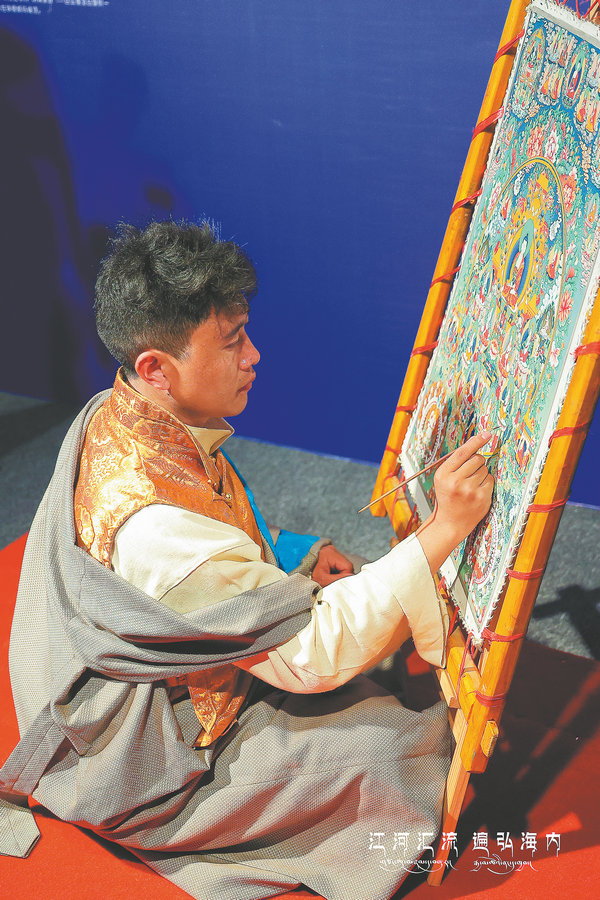
Sakya county has played an important role in Chinese history. In 1247, a Tibetan religious leader, Sakya Pandita, started his three-year journey to Liangzhou — today known as Wuwei, in Gansu province — to meet with the Mongolian prince. The meeting, called the Liangzhou Talk, created a political foundation for Tibet being included in a united Chinese nation.
After Sakya Pandita passed away, Phagpa, who also participated in the Liangzhou Talk, inherited his religious authority. Kublai Khan, the founder of the Yuan Dynasty, appointed Phagpa as imperial preceptor and Sakya thus became a pivotal place connecting Tibet and the central government.
Thangka artists created a collection of 30 large thangkas to document the history of Phagpa and his involvement in the Liangzhou Talk, as well as his visit to Kublai Khan in Beijing. Only 25 of these works still remain today.
If you go
Shanghai History Museum, 325 Nanjing West Road, Shanghai, till Aug 10
Xuhui Art Museum, 1413 Huaihai Middle Road, Shanghai, till July 2


